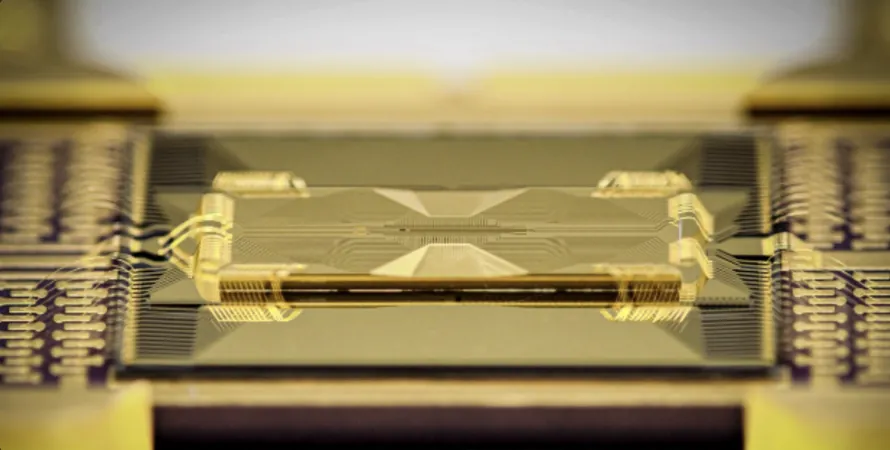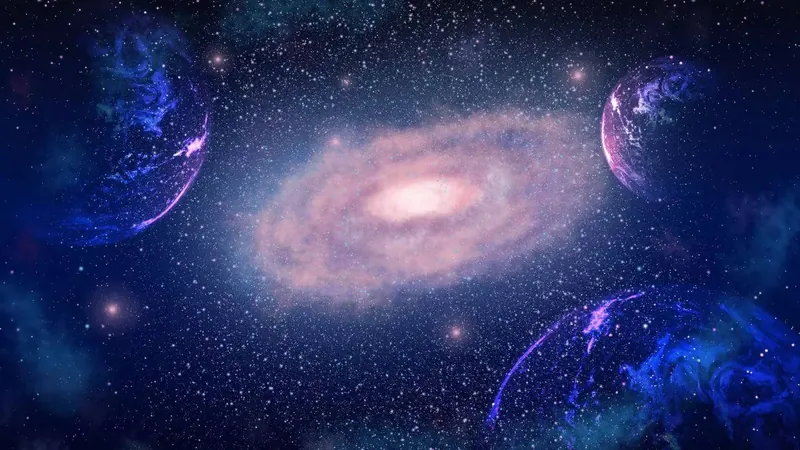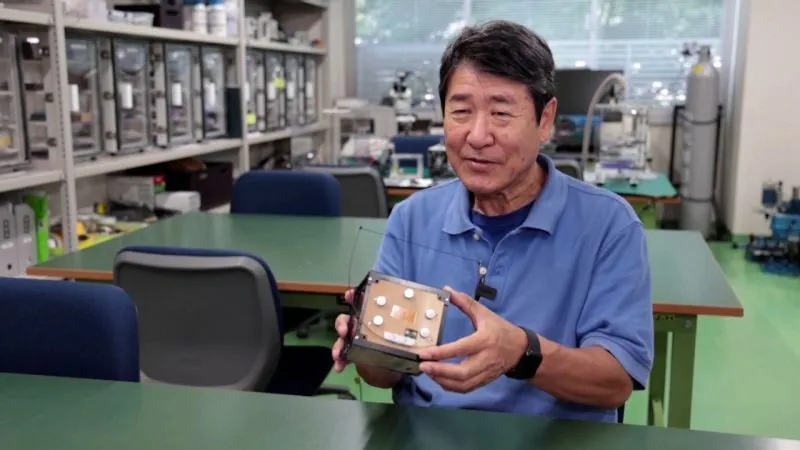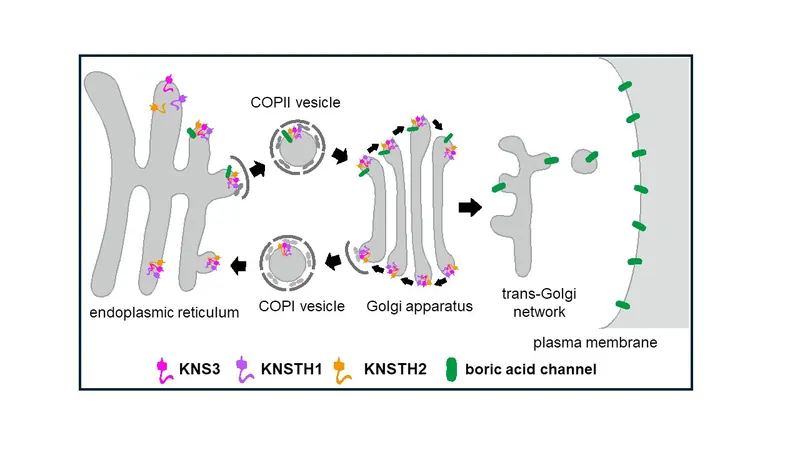
New Discoveries in Quantum Magic: Unlocking Potential for Next-Gen Quantum Computing!
2024-10-28
Author: Yu
Introduction
In a groundbreaking study, researchers have shed light on a remarkable phenomenon known as "magic" within quantum systems, unveiling a phase transition that could revolutionize quantum computing. But what exactly is magic in this context? In quantum mechanics, magic refers to the unique characteristics of quantum states that distinguish them from stabilizer states—those that classical computers can easily simulate.
The Importance of Magic in Quantum Computing
Magic is essential for achieving universal and fault-tolerant quantum computing via simple gate operations. Understanding the mechanisms that govern magic states could enable engineers to enhance the performance of quantum computers significantly.
A team from the University of Maryland, NIST, IonQ Inc., and the Duke Quantum Center has recently made significant strides in this area. They examined a random stabilizer code designed to safeguard quantum information against errors, uncovering fascinating behaviors concerning magic when these codes are subjected to coherent errors.
Key Findings in the Study
Their findings, published in *Nature Physics*, provide crucial insights into the origins of magic states, suggesting that better creation methods might soon be achievable.
"While terms like superposition and entanglement often dominate discussions surrounding quantum computing, they are not sufficient alone to outperform classical computers," emphasized co-author Pradeep Niroula. "The key ingredient that sets quantum systems apart is magic. Without it, a quantum system is no more powerful than classical counterparts."
Challenges in Creating Magic States
While forming superpositions and entangling states is relatively straightforward, introducing magic to qubits and moving them away from easy-to-simulate stabilizer states poses a significant challenge. Terms like "magic state distillation" or "magic state cultivation" are often referenced in literature, reflecting the intricate processes involved in creating these essential quantum states.
Building on Previous Research
The current study builds on previous research conducted by Niroula and colleagues, which explored similar phase transitions in entanglement. They aimed to determine whether the same type of phase transition exists for magic as it does for entanglement. Their efforts revealed that, indeed, magic states exhibit phase transitions, governed by two opposing forces: those that create magic and those that destroy it.
The Role of Measurements
Niroula elaborated, "In our findings concerning entanglement, we discovered that adding measurements can either enhance or diminish entangled states. However, it is critical to note that measurements also affect magic. To effectively control this, precise qubit rotations are necessary." Essentially, the balance between measurement and rotation can determine whether a quantum system operates in a magic-rich state or not.
Experimental Confirmation
Through a series of numerical simulations and follow-up experiments on real quantum circuits—even those affected by noise—Niroula's team confirmed the existence of a phase transition in magic. "We detected this phenomenon even amid challenging conditions in noisy machines," he stated with enthusiasm.
Implications of the Findings
The implications of these findings are broad and significant. This research opens doors for further inquiries into various resources within error-corrected quantum computing systems. The team feels that identifying other properties that may undergo similar phase transitions could lead to a deeper understanding of the nature of quantum mechanics.
Future Directions
Niroula concluded, "Our insights may pave the way for developing effective 'magic state factories' to produce high-quality magic states for use in quantum computing. Given the growing interest in error-correction fundamentals, our work could play a crucial role in clarifying the building blocks of this promising technology."
Conclusion
Stay tuned as we delve deeper into the intricacies of quantum research and the potential transformations in computing technologies that lie on the horizon! Is the future of computing truly quantum? The revelations from this study could propel us to an exciting new era in technology.





 Brasil (PT)
Brasil (PT)
 Canada (EN)
Canada (EN)
 Chile (ES)
Chile (ES)
 España (ES)
España (ES)
 France (FR)
France (FR)
 Hong Kong (EN)
Hong Kong (EN)
 Italia (IT)
Italia (IT)
 日本 (JA)
日本 (JA)
 Magyarország (HU)
Magyarország (HU)
 Norge (NO)
Norge (NO)
 Polska (PL)
Polska (PL)
 Schweiz (DE)
Schweiz (DE)
 Singapore (EN)
Singapore (EN)
 Sverige (SV)
Sverige (SV)
 Suomi (FI)
Suomi (FI)
 Türkiye (TR)
Türkiye (TR)